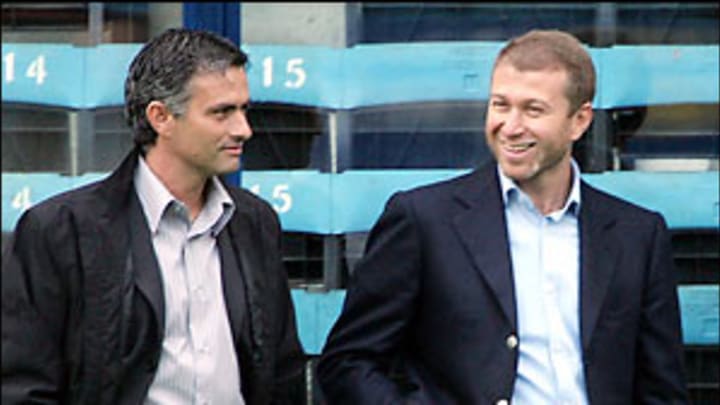Roman's empire

José Mourinho was always going to leave Chelsea. The surprise is that he lasted so long. "I know that one day I will be sacked," he told me in an interview in October 2004, three months into his time at Chelsea.
When he was 10 years old, Mourinho said his father had been fired as a manager in Portugal. "On Christmas Day the telephone rang and he was sacked in the middle of our lunch. So I know all about the ups and downs of football."
There is no doubt in my mind that Mourinho was sacked by Chelsea, despite the carefully crafted statement from the club declaring that Mourinho had left "by mutual consent."
"Look the phrase up in the dictionary," was Mourinho's sarcastic response when asked if he had jumped or been pushed. The reported $36 million settlement to Mourinho and his backroom staff is said to include a clause that he will not seek employment with another English club, as well as strict confidentiality agreements that will test Mourinho's verbal discipline to the limit.
There is also no doubt that the decision to part company with Mourinho was made by club owner Roman Abramovich, and nobody else. Now, through the appointment of his confidant, Avram Grant, as Mourinho's replacement, the Russian has close control of team affairs.
Abramovich was known to be upset that Mourinho, not him, had received the credit for Chelsea's Premier League triumphs. The appointments of Frank Arnesen as sporting director and Grant as director of football were designed to reduce Mourinho's influence. Yet they were also the main contributory factors, along with the signing of Andriy Shevchenko, in the deterioration of Mourinho's relationship with Abramovich.
Arnesen and Grant certainly reduced Mourinho's influence in the transfer market, but it was Mourinho who maintained control of team affairs -- much to the annoyance of Abramovich, who believed his investment gave him the right to demand more attacking football from his team.
Mourinho was the one person at Chelsea who stood up to Abramovich, refusing to play Shevchenko despite the owner's close friendship with the player and persisting with functional tactics that were designed to deliver trophies rather than prizes for artistic merit.
Mourinho's departure has now sparked a crisis entirely of Abramovich's own making. Chelsea has lost the most successful manager in its history, a man who can rightfully claim to be the best club coach in world soccer. And all because of the ego and intransigence of its owner.
To understand the machinations at Chelsea, it is important to understand that it is a club run by mercenaries. At every other major club in world soccer, the directors and key non-playing staff have some emotional or historical connection with the club. Not so at Chelsea.
Even at Barcelona and Real Madrid, the two most "political" clubs in continental Europe, the respective sporting directors, Txiki Begiristain and Predrag Mijatovic, are former players.
In contrast, all the key staff at Chelsea, from chief executive Peter Kenyon through to Grant, Arnesen and a host of administrative staff, have joined the club because Abramovich offered to double, triple or in some cases quadruple their previous salaries.
They owe their positions, and newfound wealth, to Abramovich, and Abramovich alone. They jostle for influence with their boss like competing favorite sons. And their rivalries led to the inevitable departure of Mourinho and the installation of a new head coach: Roman Abramovich.
